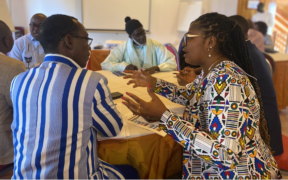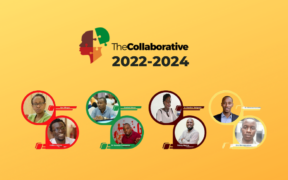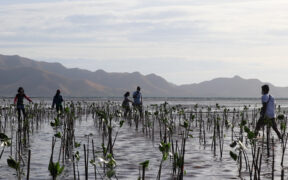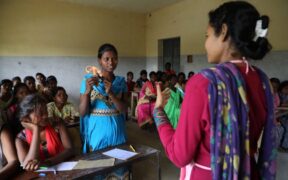Category:
Project News

Our brand-new quarterly newsletter, Together for Tomorrow, a vibrant compilation showcases the latest triumphs and breakthroughs within our Family Planning and Reproductive Health (FP/RH) community across Asia, East Africa, and West Africa. It’s a PDF resource that’s intended to be read offline.

In this insightful interview, we had the pleasure of sitting down with Meena Arivananthan, the Asia Knowledge Management Officer for Knowledge SUCCESS, who joined the team several months ago in September 2023.

Explore the initiatives taken by Knowledge SUCCESS to enhance knowledge sharing and capacity building in East Africa's health sector.

Across July and August 2023, the Knowledge SUCCESS East Africa team hosted their third Learning Circles cohort with twenty-two FP/RH practitioners from Kenya, Uganda, Tanzania, South Sudan, and Ghana.

Across our regional work in East Africa, the Knowledge SUCCESS project has prioritized knowledge management (KM) capacity strengthening and ongoing mentorship as a key strategy to sustaining effective use of KM approaches across individuals, organizations, and networks.

Learning Circles are held virtually (four weekly two-hour sessions) or in person (three full consecutive days), in English and in French. The first cohorts were facilitated by Knowledge SUCCESS regional program officers, but to ensure the sustainability of the model, Knowledge SUCCESS has since partnered with other organizations (such as FP2030 and Breakthrough ACTION) to train them to facilitate.

As we extend a warm welcome to the 2024 members of the steering committee, we express profound gratitude to the outgoing team for their invaluable experiences and insights. Join us in celebrating their journey and gathering wisdom to empower the incoming team.

After three years, we’re ending our popular “That One Thing” email newsletter. We share the history of why we started That One Thing in April 2020 and how we decided it was time for the newsletter to come to a close.

We’ve interviewed Dr. Joan L. Castro, M.D. as a transformative leader and healthcare professional dedicated to reshaping public health.














